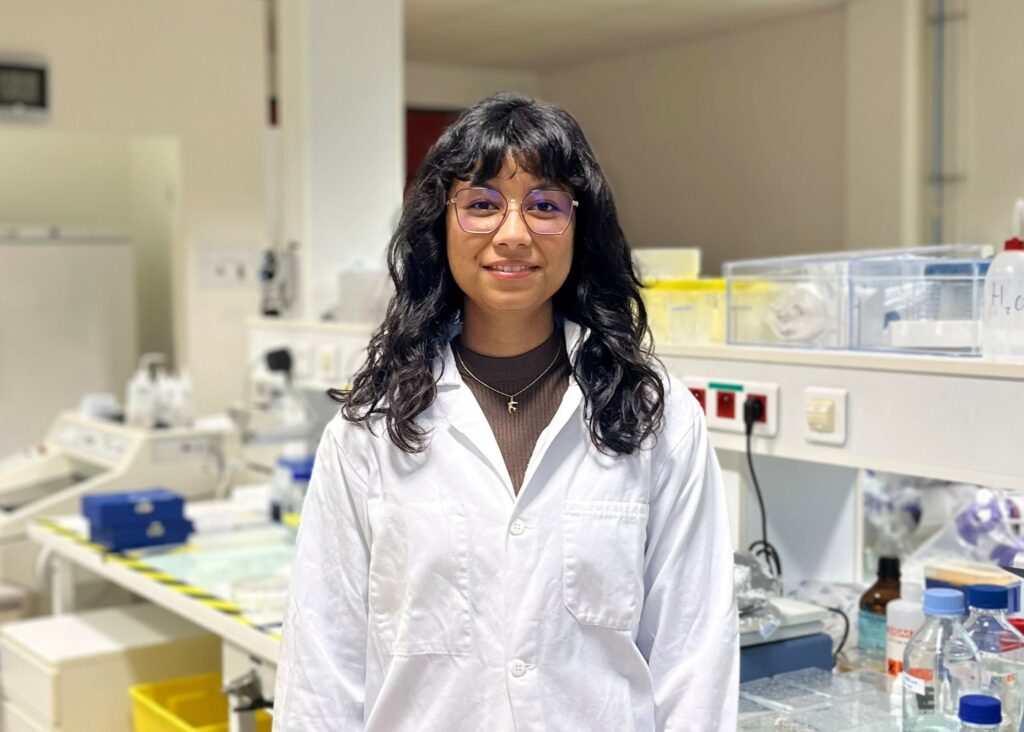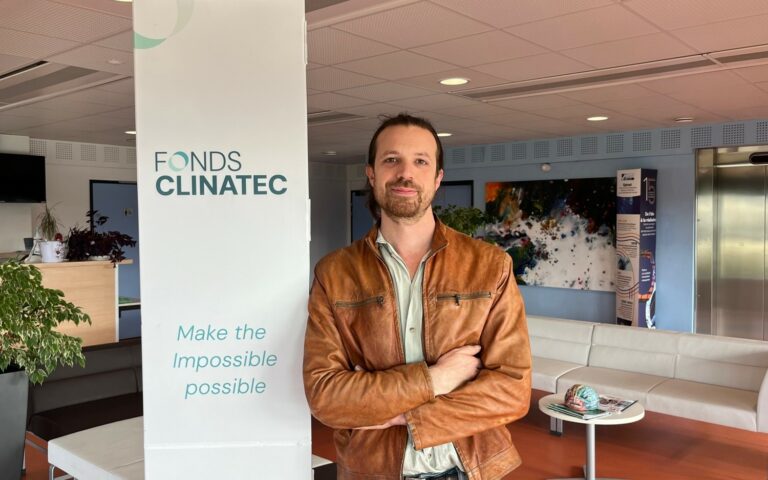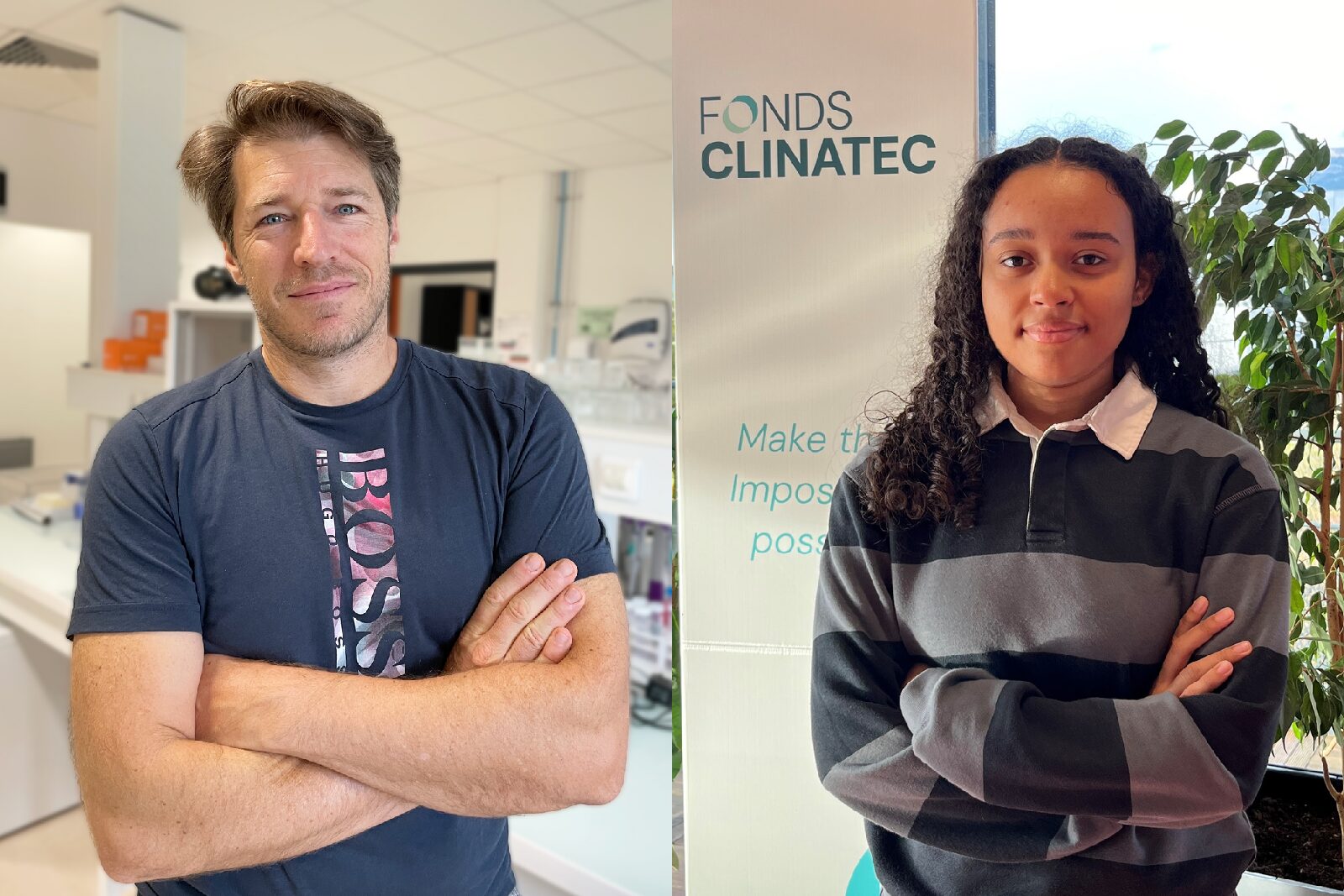
“I felt a special connection alongside seniors suffering from various forms of dementia, and it was then that I developed a strong interest in neurodegenerative diseases.”
Hi Maya,
What’s your background? What made you want to join the Clinatec team? and what project are you working on?
I graduated in 2022 with a degree in Life Sciences from the University of Versailles Saint-Quentin en Yvelines (UVSQ). Then I completed my Master 1 “Biology-Health – Physiology and Pathophysiology” at Paris-Saclay. As I’m very interested in age-related diseases, I decided to continue my university education with a Master 2 in Biology of Ageing at Paris-Saclay.
My passion for brain research has always been there. During my voluntary work at the André Mignot Hospital in Versailles, where I spent several months talking to patients and trying to reassure them, I think I discovered my true vocation. The conversations I’ve had with elderly people suffering from various forms of dementia, such as Alzheimer’s and Parkinson’s, have had a profound effect on me. I felt a special connection with them and I think it was at that particular moment that I developed a strong interest in neurodegenerative diseases. This experience prompted me to set out to understand the biological mechanisms underlying these pathologies. My aim and motivation is to acquire in-depth knowledge so that, in some way, I can help the people I meet.
As part of my M2 program, I attended a conference given by Dr Audrey Valverde, a post-doctoral fellow at the Fonds Clinatec. The conference was very interesting, so I applied to her for an internship. Working at two institutes (Fonds Clinatec in Grenoble and the Institute of Molecular and Cellular Pharmacology in Sophia-Antipolis) and under his supervision and that of Dr Raphaëlle Pardossi, I’m investigating the neuroprotective effect of photobiomodulation in the context of Alzheimer’s disease. The aim of my internship is to use biochemical and cell biology approaches to confirm the neuroprotective effect of long-term photobiomodulation in the 3xTgAD mouse model.
Today’s major challenge lies in finding an effective therapeutic solution for Alzheimer’s and other neurodegenerative diseases, the number of cases of which continues to rise as the population ages. Current drug treatments are controversial in terms of their efficacy, and are often accompanied by undesirable side effects. In this context, the project I’m involved in aims to demonstrate that photobiomodulation can represent a promising non-drug alternative. However, this challenge involves technical aspects related to the implementation of photobiomodulation as a therapeutic method, while raising important societal issues concerning the acceptance and adoption of new non-drug approaches in the field of age-related health.



